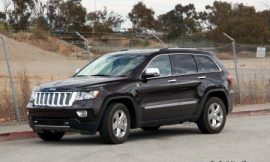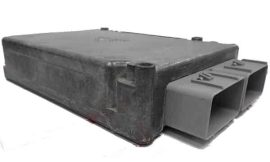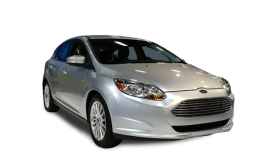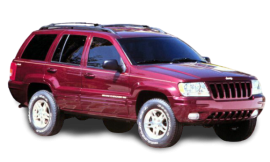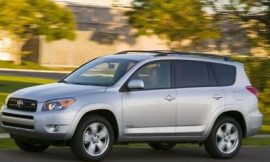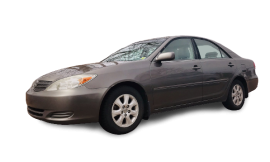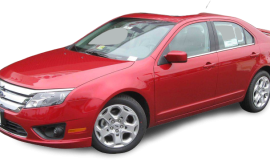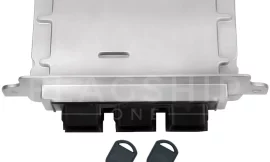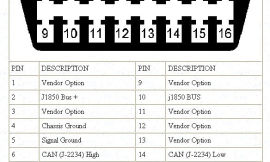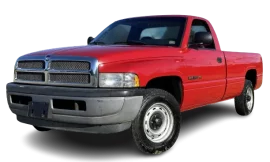Last updated on November 4th, 2024 at 10:58 am
PCM, BCM, ECU, ECM, EFI, CAN…does anyone speak English here???
Welcome to the modern automobile industry, a world of ever-increasing (and at times, ever-changing!) acronyms. But fear not — Flagship One and the folks at VR00m are here to explain it all for you!
An FYI on the ABC’s of PCM’s, ECU’s, ETC
Acronyms are nothing new, of course, and are one of the many advantages of an alphabetic language. Indeed, though their proliferation is often bewildering, spelling out the full terms for which they stand would surely be more vexing. But that’s just what we’re gonna do here — so that you can appreciate the alphabet soup of acronyms the next time you bump up against a wall of ’em (NB: YMMV)!
| ABS | Anti-lock Brake System or Anti-skid Braking System, which allows the wheels to maintain traction while braking, thus helping to prevent skidding and even improve the braking distance. |
| BCM | Body Control Module: a catch-all term for an Electronic Control Unit responsible for a vehicle’s powered windows, air conditioning, and the like. |
| CAN | Controller Area Network, a protocol covering the entirety of a car’s electronic nervous system of sensors. Often used interchangeably with “CANbus” or “CAN bus.” |
| CANbus | Controller Area Network bus: technically the bus portion of a vehicle’s CAN (a bus is a distinct electronic pathway, comprised of signals conductors and other such components), these days used as a synonym for the CAN itself. Also spelled as two separate words, “CAN bus.” |
| CTM | Central Timer or Timing Module, which works closely with the GEM to oversee various subsystems. |
| DSC | Dynamic Stability Control; see ESC. |
| ECM | Engine Control Module or, more frequently these days, Electronic Control Module. These days, the acronym seems to more often refer to the latter meaning. |
| ECU | Engine Computer Unit or, more frequently these days, Electronic Control Unit. These days, the preferred acronym seems to be ECM. |
| EFI | Electronic Fuel Injection, today a computerized means of introducing fuel to a vehicle’s engine, eliminating the need for a carburetor (except for those using diesel). |
| ESC | Electronic Stability Control, AKA ESP and DSC, monitors vehicular stability to help prevent skidding by intelligently anticipating driver intentions and even compensating for them through various means, such as automatics application of braking or proactively reducing engine power. |
| ESP | Electronic Stability Program; see ESC. |
| FICM | Fuel Injection Control Module, the Electronic Control Module that sends a signal to the injector to deliver the precise amount of fuel needed by the engine cylinder. Available in quickly swappable pre-programmed and custom-programmable varieties. |
| GEM | Generic Electronic Module, a Ford-specific Electronic Control Unit or Module that incorporates multiple functions onto one unit or module, such as controlling the mirror timer, windshield wipers, and interior lights. Often closely paired with the CTM in Ford vehicles |
| J2534 | A government-mandated interface standard developed by SAE for programming ECU’s, J2534-1 is the set of core definitions while J2534-2 defines optional features. |
| MAF | Mass Air Flow sensor, used to determine the mass flowrate of air entering the vehicle’s engine. The information provided is absolutely vital to the Engine Control Unit’s proper execution of its duties. |
| OBD | On-Board Diagnostics, another SAE-created standard, used for vehicle control and diagnostics. What is now known as OBD-I was the first iteration and offered rudimentary options; the later OBD-II specifications still in use today provide vastly more extensive capabilities. |
| OEM | Original Equipment Manufacturer; in theory simply referring to the company that actually manufactured a product but in practice subject to some ambiguity and inconsistent application. In the automotive industry, the term is used as an adjective to distinguish parts which are found in a vehicle as delivered from the factory and those that are “aftermarket” from “third-party” vendors. |
| PCM | Powertrain Control Module, which includes the Engine Control Unit or Module as well as various other Electronic Control Units or Modules. |
| RAP | Remote Anti-theft Personality module, a Ford-specific part responsible for vehicle security functions such as perimeter anti-theft services and computer-operated locking systems like keyless entry. |
| SAE | Society of Automotive Engineers, today known simply as SAE International due to its broader reach encompassing engineers in diverse industries, though emphasis remains on those related to transportation. |
| TBI | Throttle Body Injection is what General Motors calls the injection of fuel into the throttle body; called Central Fuel Injection, or CFI, by Ford. |
| TCM | Transmission Control Module, the Electronic Control Unit responsible for calculating when and how to change gears for fuel economy and overall optimum performance. |
| TCU | Transmission Control Unit, another term for the TCM. |



